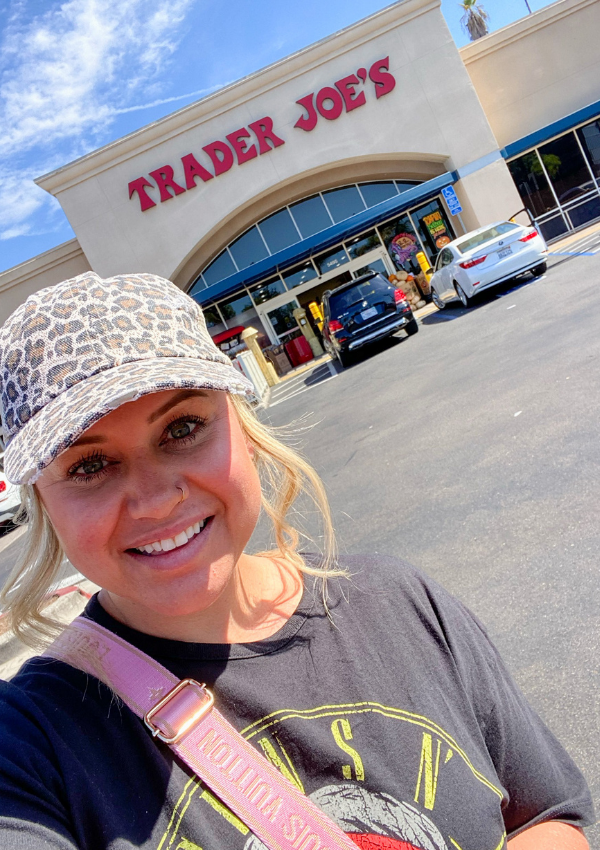In the ever-evolving world of health and wellness, authenticity is everything. So when popular influencer Janelle Rohner, known for her massive following on TikTok, revealed she’d been using GLP-1 medications as part of her weight loss plan, it sent shockwaves through her community. With 5.2 million TikTok followers and a thriving online presence, Janelle has built her brand on teaching healthy lifestyle choices—from keto diets to exercise routines—but this latest revelation has left many questioning her credibility.

The Revelation: GLP-1 Medications and Weight Loss
In an April 23 YouTube video, Janelle shared a personal confession: she had incorporated GLP-1 medications, specifically Semaglutide-based drugs like Ozempic and Wegovy, into her weight loss regimen. These medications have gained significant attention in recent years for their ability to help people lose weight, but also for their controversial use among celebrities and influencers.
“I started working with a doctor and we decided to add a GLP-1 to my plan,” Janelle began in her video. She continued by explaining that this wasn’t a last-minute decision, but one after exhausting all other methods. “I had tried it all—keto, macros, workouts, lifestyle shifts,” she confessed. However, after facing stubborn weight loss plateaus, Janelle turned to GLP-1s for assistance, considering them as a “tool” in her arsenal, rather than the sole solution.
“GLP-1s are not magic,” Janelle clarified. “They don’t change your lifestyle overnight. They’re just a tool to help. I still had to show up—show up for my meals, track my macros, drink my water, go on walks, do my workouts—everything that I already teach and believe in. It just helped me regain a sense of control.”
Over the course of a few months, Janelle claimed to have lost 10 to 15 pounds, a weight loss that she seemed genuinely happy with. “I was thrilled with the results,” she shared. To maintain her progress, Janelle switched to “microdosing” the medication, taking it once a month for upkeep.
The Backlash: Fans Feel Misled
While Janelle’s transparency was meant to foster understanding, her announcement didn’t exactly land well with all of her followers. Many were upset, accusing her of misleading her audience—particularly those who had purchased her $200 weight loss courses. Critics argued that Janelle, who has built her brand around selling health programs, had not been upfront about the role the GLP-1 medication played in her transformation.
One commenter sharply pointed out, “The issue isn’t about using GLP-1 or seeking help from a doctor for your mental health… The real problem is charging people for a weight loss program while hiding the true reason behind your own weight loss.”
Another user expressed their disappointment, writing: “You’re taking people’s money, misleading them, and not being honest with yourself either.”
As the backlash continued to grow, Janelle faced a moral dilemma: should she stay quiet and hope the controversy dies down, or should she take responsibility and address the accusations head-on?
The Apology: A Message of Honesty and Accountability
A day later, Janelle posted a TikTok video in which she responded to the negative feedback with an apology. “I’m not asking for sympathy, I’m just trying to do the right thing, and I’m trying to be honest,” she began, her voice tinged with sincerity.
“I could have kept this a secret. I could have gone on and on for years without telling anyone. But I didn’t want to do that,” she continued. Janelle’s vulnerability was apparent as she acknowledged the difficulty of being open with her audience, especially in such a polarized online environment. “The internet is such a scary place to be open and vulnerable,” she admitted.
In her apology, she reiterated that her decision to use GLP-1 medications was not a reflection of her belief in her own programs. “I did not take a GLP-1 because I didn’t believe in my classes and macros. I did it for other personal and health reasons to use as a tool to hit my goals,” Janelle explained.
Still, she acknowledged that if people felt deceived by her actions, she was genuinely sorry. “If people felt deceived by that, I really truly am sorry,” she said, before offering a solution to make amends.
To show that she was taking full accountability, Janelle made an offer that could help rebuild her trust with her community. She promised to refund anyone who had purchased her weight loss classes over the past 11 months, explaining that she wanted to be transparent and fair.

A Complex Conversation: The Reality of Weight Loss Medications
The controversy surrounding Janelle’s use of GLP-1 medications highlights an important conversation about the ethics of weight loss products and how influencers promote their personal transformations. While medications like Ozempic and Wegovy have been shown to aid weight loss, they are not a quick fix. For many, they provide a valuable tool in combination with a healthy lifestyle—something Janelle seemed to emphasize in her apology.
At the same time, the backlash raises a broader issue: the transparency and authenticity that followers expect from influencers who charge for their advice. Many people turn to influencers for guidance in areas like fitness and weight loss, believing that these individuals are experts in their field. When those influencers reveal that they’ve taken a different route to achieve their results—especially when they’ve been charging people for programs that may not include those same tools—fans can feel betrayed.
In Janelle’s case, the fact that she made an effort to be open about her use of GLP-1 medications should, in theory, encourage honest conversations about weight loss. However, it’s the lack of early transparency that led to her audience’s frustration.
A Valuable Lesson for Influencers and Followers Alike
Janelle’s experience is a reminder of the delicate balance that influencers must strike between personal success and public accountability. It also highlights the need for transparency, especially when health-related products or services are involved. Influencers need to recognize that their platforms come with a level of responsibility—especially when promoting weight loss programs that are tied to personal success stories.
For followers, the key takeaway is this: weight loss is personal, and every journey is different. While influencers like Janelle may offer valuable tips, tools, and motivation, it’s important to remember that weight loss isn’t just about what’s on the outside—it’s about health, mental well-being, and finding what works for each individual.
Janelle’s candidness about her use of medication and her apology for any miscommunication serves as a valuable lesson in both honesty and humility. It’s a reminder that authenticity is key in the wellness community—and that even the most well-meaning influencers can fall short when it comes to being transparent with their followers.
Janelle Rohner’s Weight Loss Controversy: Key Takeaways
-
GLP-1 medications, such as Ozempic and Wegovy, have become increasingly popular for weight loss, but they are not a miracle solution. They should be used as part of a comprehensive weight loss strategy that includes a healthy diet and regular exercise.
-
Influencers like Janelle Rohner are held to a high standard when promoting health and wellness products. Transparency is crucial to maintain trust with followers.
-
Janelle’s apology highlights the importance of accountability and honesty in the wellness industry, especially when personal success stories are shared.
-
Refund offer: In response to backlash, Janelle offered refunds to anyone who had purchased her weight loss classes in the last 11 months, taking responsibility for the confusion.
While Janelle’s situation may have sparked controversy, it’s also sparked a much-needed discussion about the ethics of promoting weight loss in the influencer space. For followers, it’s a reminder that every weight loss journey is unique—and it’s important to approach such matters with honesty and self-awareness.